
31 minute read
Super Resilience with Expert Mentor Dr. Scott Mills
Engaging in Super Resilience to Maximize Personal Potential: Finding Success and Happiness with Expert Mentor, Dr. SCOTT MILLS
By Sasha Frate Photography of Dr. Scott Mills by Myron Hensel
Advertisement
What if you could be free from the hidden traps that keep you stuck at the edge of your next evolution? What if the key to unlocking your most successful life has been hidden in your head all along?
Scott Mills, Ph.D. has been studying and teaching the ways in which humans really work for over twenty-five years, and he uses the findings to help his clients discover their paths to freedom.
Specializing in the functionality of the evolved brain, enduring business strategies, and the unleashing of creativity to achieve success, Dr. Mills shares his expertise across a breadth of applications to help his clients achieve financial and personal fulfillment and success.
In part one of his two-part interview, Face the Current shared a deep discussion with Dr. Scott that revealed insights into super resilience, the Human Evolution System, the expansion of our personal capacity, the concept of a “full body yes”, and the importance of living as an embodied being.
Sasha Frate: You really have a unique area of expertise and background to be able to step forward now and apply it and align with everything that’s going on—it’s really valuable for people to have these tools that you’re providing. I’d love to talk about your approach to the concept of resilience. You said that you apply more of a Buddhist philosophy, and you’ve described super resilience as, “Being able to trust life, to ask for what you want, when you need it, to receive fully, and to give without expectation.” Can you explain this further and the way in which your definition of resilience differs from that of the mainstream?
Dr. Scott Mills: I love this question. I’ve been doing this work for years with my private clients, and when COVID-19 came along, it felt important to get this concept of resilience to more people. Let me first say that this is in the frame of what I call the Human Evolution System, which is a Buddhist Taoist perspective. (For years I studied multiple spiritual traditions along with psychology. I have a PhD in religion and psychology, and I’ve been studying mythology since the fifth grade and looking at the ways in which people make meaning for themselves.)
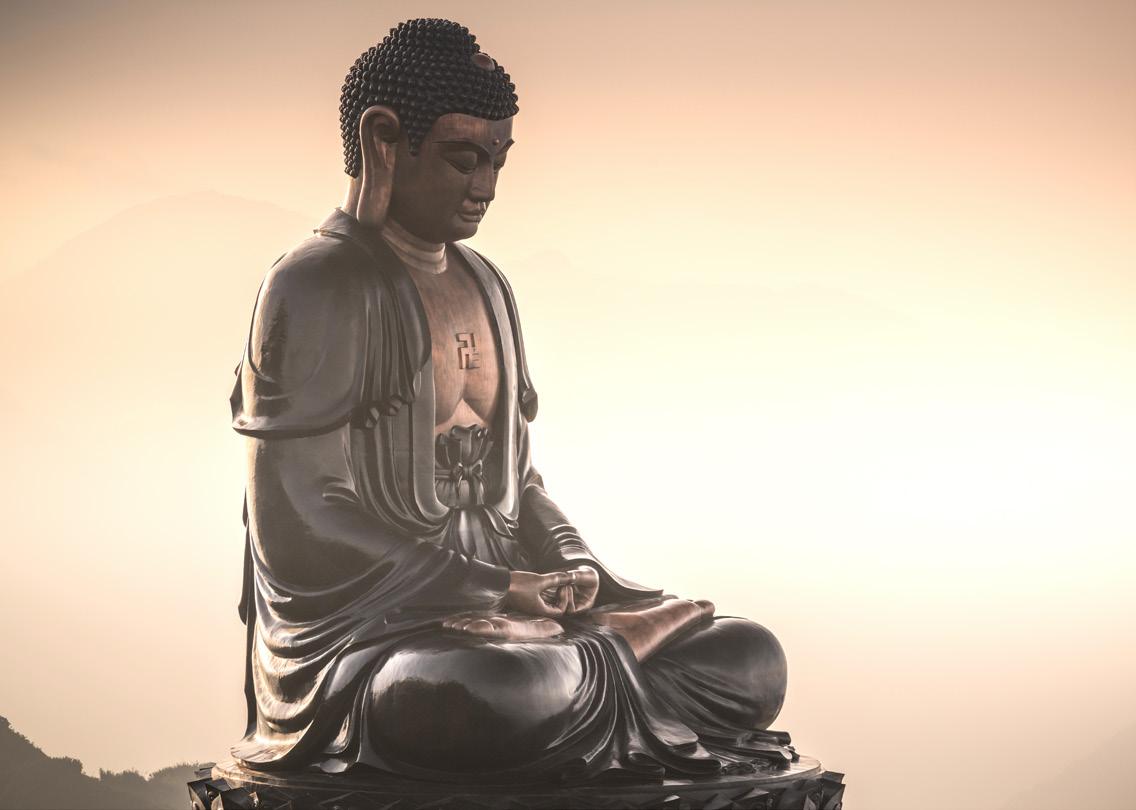
So, how do we make meaning for ourselves and how do we relate to the world? Buddhism and Taoism have been particularly influential to me. Taoism isn’t as well known in the Western world, but it’s a naturebased philosophy that looks at how we move with the way that life moves. I think it really helps make sense of Buddhism, which I feel is often misinterpreted in the US in terms of engaging with life. So Taoism is a little bit more concrete but has also been heavily influenced by mystic traditions all over the world.
(Part of what I love about being alive right now is an accessibility to information that was never available before now. The capacity to jump online and get a book from China or India or Ethiopia that’s written by a local author—we just couldn’t do that before. And, even if it’s in a language that we don’t speak, we now have tools to instantly translate it— pretty amazing.)
I’ve combined those influences together to create what I’ve called the Human Evolution System, which really attempts to flip personal development on its head. I just felt like traditional methods didn’t work. Because I had a lot of my own stuff
to work out, I spent a lot of time reading self-help and psychology books. I would do the exercises in the books and try to figure it out, but I would just not see anything moving. I even tried therapy when I was in my early twenties and I think therapists are amazing, but again, I didn’t find success.
I started listening to Buddhist teachers who were saying things like: “You have the Buddha nature within you.” Even some Christian mystics would say: “You have Christ consciousness within you.” (Matthew Fox is a good example of this work!)
What if I held the belief first and foremost that I wasn’t broken; that I was actually just an okay human being? What if I acknowledged that I was trying to

figure out this crazy world we’re living in while making sense of the puritanical work ethic that we’ve inherited in the Western world that says, “I’m somehow broken. I must fix myself to be right with God.” We really have inherited that and that’s what so much of Western self-help is built on. So, I wondered what would happen if I just connected into this place in myself that knows what it is to be whole. That started to change everything in the way that I thought about personal development. For years now I’ve been working on understanding how you embrace the wholeness, both of yourself and the person sitting across from you. It changes the whole dynamic of relationships. If you sit down with your partner and you go, “I wonder what’s wrong with them,” you’re going to find it, you’re going to be irritated with them, and you’re probably going to disintegrate your relationship. However, if you look across the table, even if things aren’t perfect, and you say, “Wow, what did I fall in love with? Where’s the
beauty in this person? Where’s the strength? Where’s the resilience?” If I can look at them in that way, all of a sudden, the relationship has somewhere to go and I can build on it. I looked at this concept of embracing wholeness, and then I said, “Okay, but people are still in pain—what is that about?” That’s about what I call “unraveling distortions”, because if we’re not truly broken, there’s nothing to fix. If we play with this notion that we are like a ball of light—like we’re energy—we’re just beautiful wholeness; there’s nothing we can do to light that can damage it, but we can hide it. I often think about it as if somebody has taken yarn and wrapped it around this ball of light: hiding the light is not a fast or sudden thing. I think it happens little by little starting when you’re a child.
Especially my women friends who get told, “Be quiet, be a nice little girl.” We’re seeing so much of this with Black Lives Matters right now; all of the ways in which people of color have been told to, “Sit down, be quiet, be good, don’t raise your voice.” My African American women friends are told: “Don’t be an angry black woman.”
SF: Even things that parents might say, or their attributes that we just attach onto ourselves: “My dad’s like this so I’m like this.”
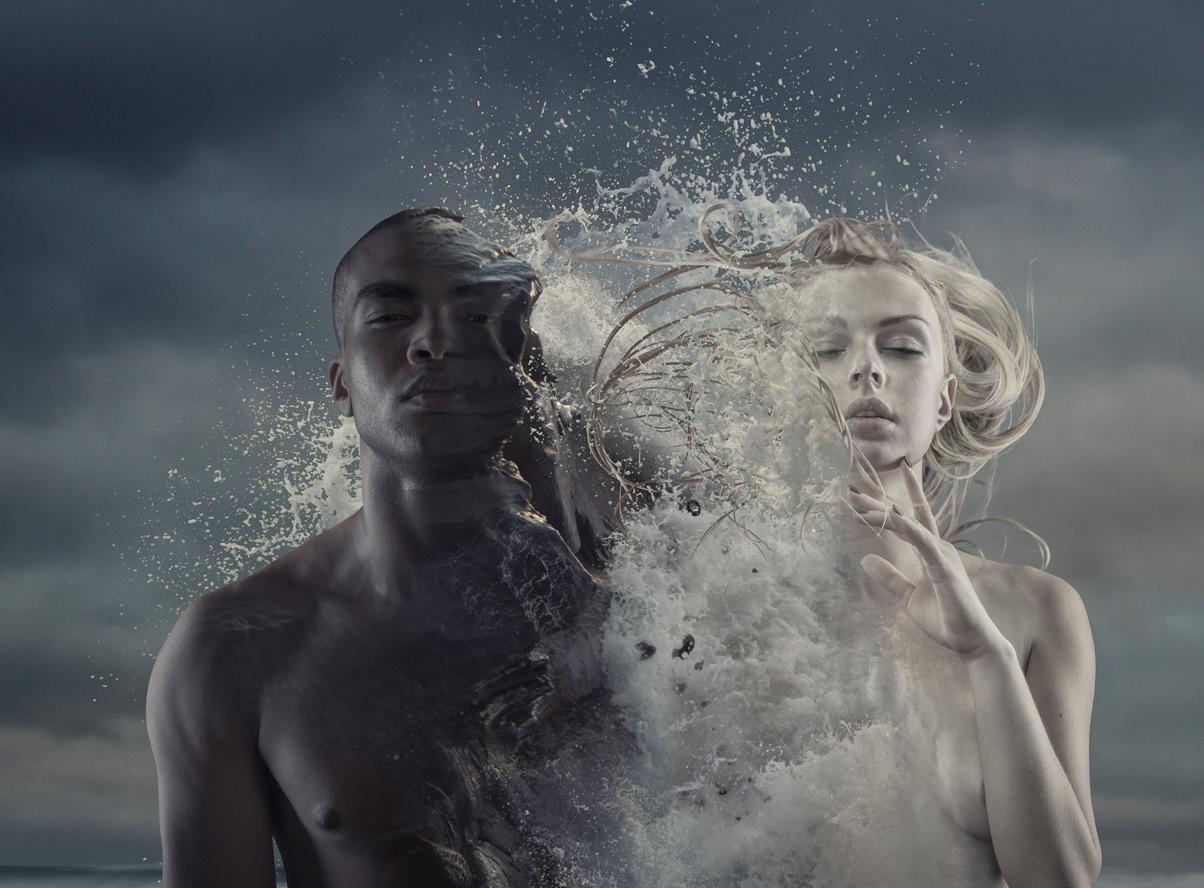
SM: Our parents so often were saying those things to help us be safe, so I don’t put any blame on them. I assume the parents were doing the best they could with what they had. They had their own limitations and they gave us all that they had and sometimes that wasn’t enough. I just hold that frame so that we can be gentle with our parents as well. But what I notice is if we just start unraveling some of those ways that the light has been hidden, it becomes a lot easier. Even just the concept of knowing you could just unravel these—there’s a liberation in that. People start to go, “Wow, this feels good. I’m not a horrible piece of thing that somebody stepped on in the street.” I can be redeemed.
The last piece of this is expanding our capacity. This is the place where we open up to what’s possible and learn new skills. It’s a fairly easy approach, but also different in terms of the way most of us do our selfwork. It cracks me up because when I work with people, they come to me to do private work and they expect me to say what everybody before had said. Instead, I tell them that I give people assignments to stop working on themselves for thirty days, and it just literally blows people’s minds. They’re like, “What? But then I won’t be getting all this horribleness out of me!” I tell them that there is no horribleness in them.
I’d been teaching with Mindvalley and I shared with one of their community groups that I was going to be teaching a class on super resilience. One excited man said, “Super resilience equals grit plus determination!” I said, “Oh, that’s beautiful, but that’s not anything of what I do.”
Most of us grew up thinking that resilience was the capacity to survive. For me, that’s a pretty limited hope in life, just to hope to make it through. We have got to ask for more than that!
I looked at super resilience and said, “Most people think that resilience is about whether or not they can survive on their own. Can I make it through?” That’s a really paltry existence for me and I personally want more, and I want more for my friends and my family and everyone else! I asked myself what it is that we’re really doing, and I think we’re collectively evolving. I talk a lot about moving beyond personal development and into collective evolution, where we’re able to not only look at what’s going on for ourselves, but also to understand what’s going on for the people around us.
People sometimes get upset with me in personal development when I talk about politics, and I respond, “I’m not talking about politics. I’m talking about people.” If somebody is in pain, if my heart touches their heart, then I need to address that. If I ignore that, it’s not so beautiful. If we’re in a collective evolution and we want to move forward and we want to feel better and we want to create space for other people, what does that look like? It came back to this Human Evolution System, which is mostly based on the cycle of breath.
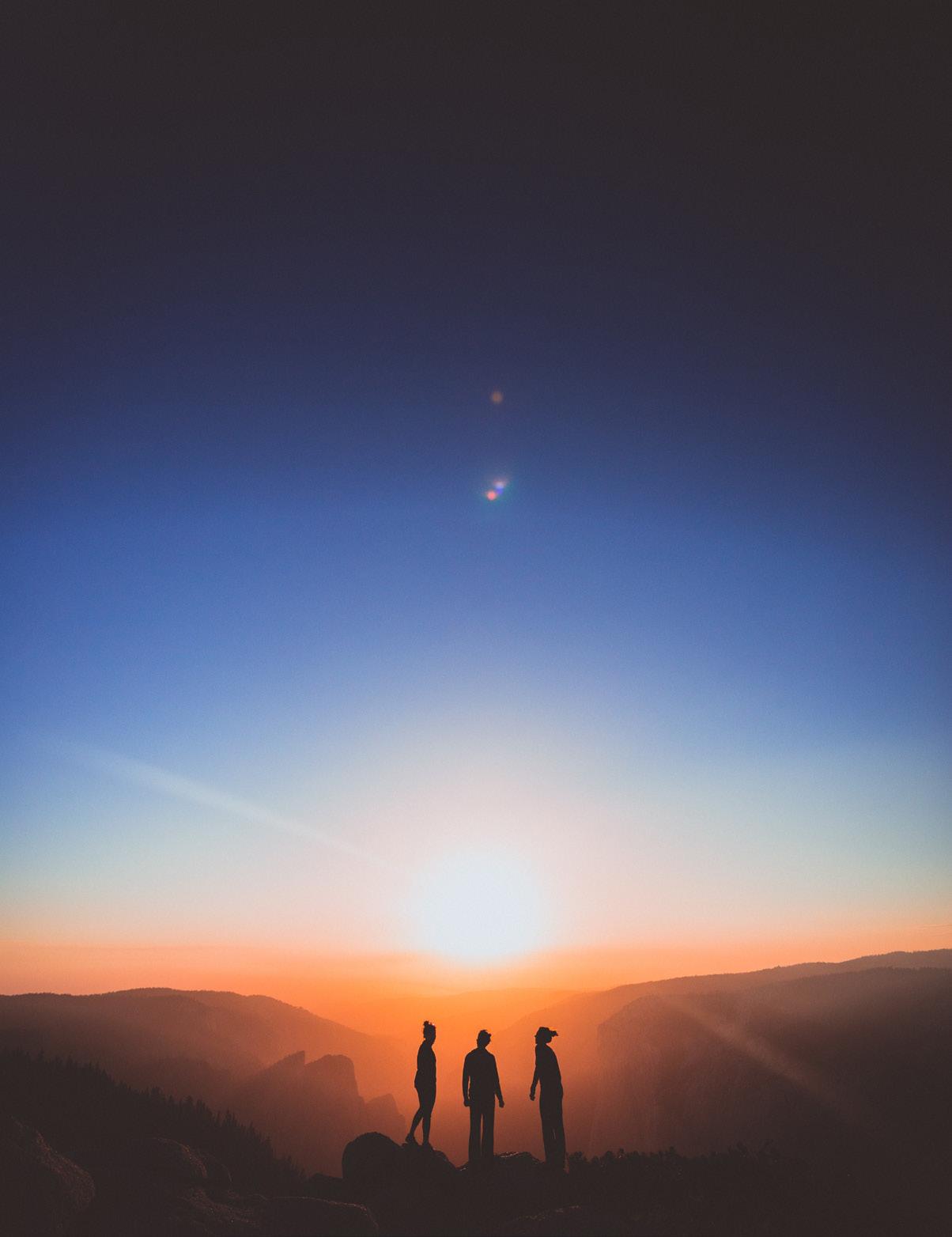
Most people think that resilience is about whether or not they can survive on their own. Can I make it through?” I talk a lot about moving beyond personal development and into collective evolution, where we’re able to not only look at what’s going on for ourselves, but also to understand what’s going on for the people around us. “ “
COVID-19 has made people aware that an alarm has been going off in their lives for a while, and they’ve been hitting the snooze button. The virus made us realize that there’s something bigger for us and we want to be doing things that are important to us. If we’re listening to ourselves, we know we’re meant for more than what we’ve been living. That’s trusting life. “ “

In thinking about breath, if we don’t receive breath and are only breathing into the top cavity of our chests, then we can only metabolize so much. We then don’t want to release very much because we’re so afraid to give what little we have.
What if the way I want it to be in relationship to life was to simply be able to trust life and to be able to know that things are going to work out? I’m not saying stop paying your bills and everything will be fine, and life will just carry you along. What I mean is there’s a capacity in me to trust myself and my own inner guidance and my own connection to life that lets me know what so many people around the world are telling me right now: there’s something important for me to be up to and it’s often not what I’m doing.
COVID-19 has made people aware that an alarm has been going off in their lives for a while, and they’ve been hitting the snooze button. They’ve been saying things like, “Well I’m not happy right now, but I’ll be happy next week,” or, “I’ll be engaged in the world next month.” We keep hitting the snooze button! COVID-19 was a global wake-up call in some sense, and a painful, painful one at that. (I keep hoping it finishes its work soon!) The virus made us realize that there’s something bigger for us and we want to be doing things that are important to us. If we’re listening to ourselves, we know we’re meant for more than what
we’ve been living. That’s trusting life. We need to simply trust that we’re not here just to pay bills until we die, which has been the consumeristic system we live in. And, to be clear, I’m not against things or buying things, but I’m an advocate for balance so that we’re not over-creating. We should not be gathering all this stuff as a way to hide from pain. What is required for us to trust life? I need to be able to ask for what I need, when I need it. So many of us have no idea how to do this, particularly in the frame of traditional resilience, because I’m not supposed to have any needs! That’s the basic assumption. If I need anything, I can figure it out myself, so I would never need to ask anybody else. What we’ve needed so much right now is connection and support. So many of us are tired.
What if I recognized that my body just needs to move, and what if I needed some connection and I could say to my friend, “I’m just really feeling lonely in this moment. Could we take a walk together?” We need connection; we need movement. It doesn’t cost any money and it creates a space for us to connect. So, the first step is just to notice what you need.
SF: I like that concept of hitting the snooze button, and I also
see us covering up and stopping our connection. We’re so used to not listening to our intuition because of outside forces or just plugging along and staying in that projectile linear path. This global situation has allowed us to pause what is typically just driving us forward and covering up our intuition, and it’s allowing that space and that time to connect and tune-in a little bit more. That voice is starting to come out for a lot of people, but the reaction can often be, “What do I do with this now?”
SM: One of the things I’ve been teaching people for a while is “full body yes”. It’s a very simple concept, but most of us are not even close to engaged in what I would think of as a full body yes. We have our conscious intelligence, which can
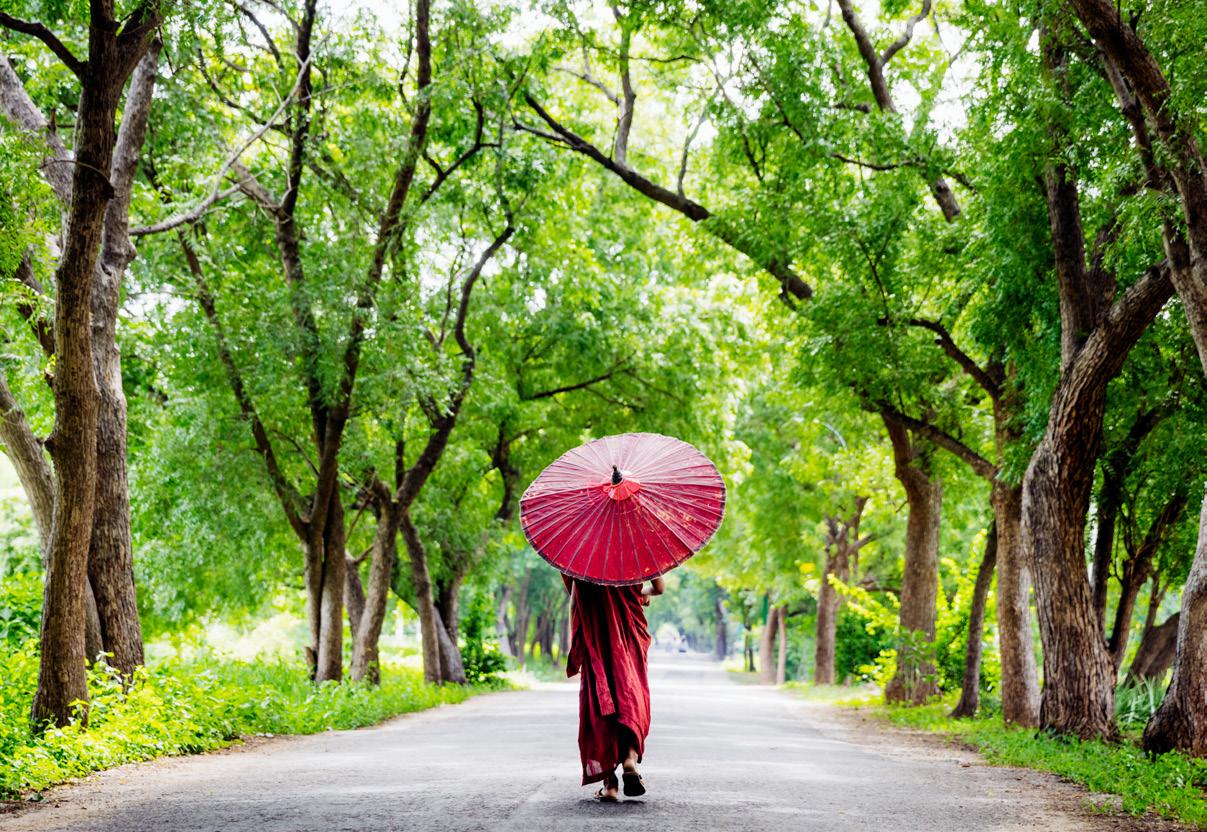
only hold about five to nine pieces of information at a time. When we ask kids what they want in life, we ask them what they want to be when they grow up and how they want to make money. I’m much more interested in the experience of life you want have, and the way we can craft what you do around that.
I think of our conscious intelligence as five to nine parking spaces, and right now in the midst of COVID-19, it’s fascinating to me that at least three of those spaces are occupied by the virus in some sense; in some worry. The more we’re stressed and worried, the less our conscious attention we have available. On top of it all, we’re trying to figure out things with all the patterns that have shifted. So, instead of going to the office, now we’re at home, there are kids running around, we’re trying to homeschool them, and we’re trying to assess if they’re okay! There is so much fear right now for kids, and I think if we deny our own fear, it’s easy to deny the fear of our children.
We all have conscious intelligence, but we also have this beautiful thing called intuitive intelligence. This is all the data that our system has been collecting our whole lives, and we know the unconscious mind can process so much more than the conscious intelligence. When we just go with the logic of our head—which is overstrained most of the time— and we’re trying to make a decision, even if we write it on paper and do pluses and minuses, we often make the wrong decision because we’re not listening to ourselves. The plus and the minus might be our mom’s opinion or our dad’s opinion or our culture’s opinion, and so I have
people just identify the pros and cons for themselves. Our bodies will tell us because they’re a great barometer for whether we’re going in the right direction. Stop listening to your head and decide what feels right.
SF: Yes, instead of trying to rationalize it.
SM: I love that you can sometimes get a “yes” that is so obvious. Of course I need to move my body and go for a run right now! This is where my whole being needs to be. I need comfort, I need to breathe the air, and I need the smell of the trees. There are lots of human elements that we forget like our need to be in nature. Other times you’ll get a “no” when you don’t want to do a certain task because you’re tired and need a rest. And sometimes you’ll get a maybe. When this happens, I always pose the question: “What would
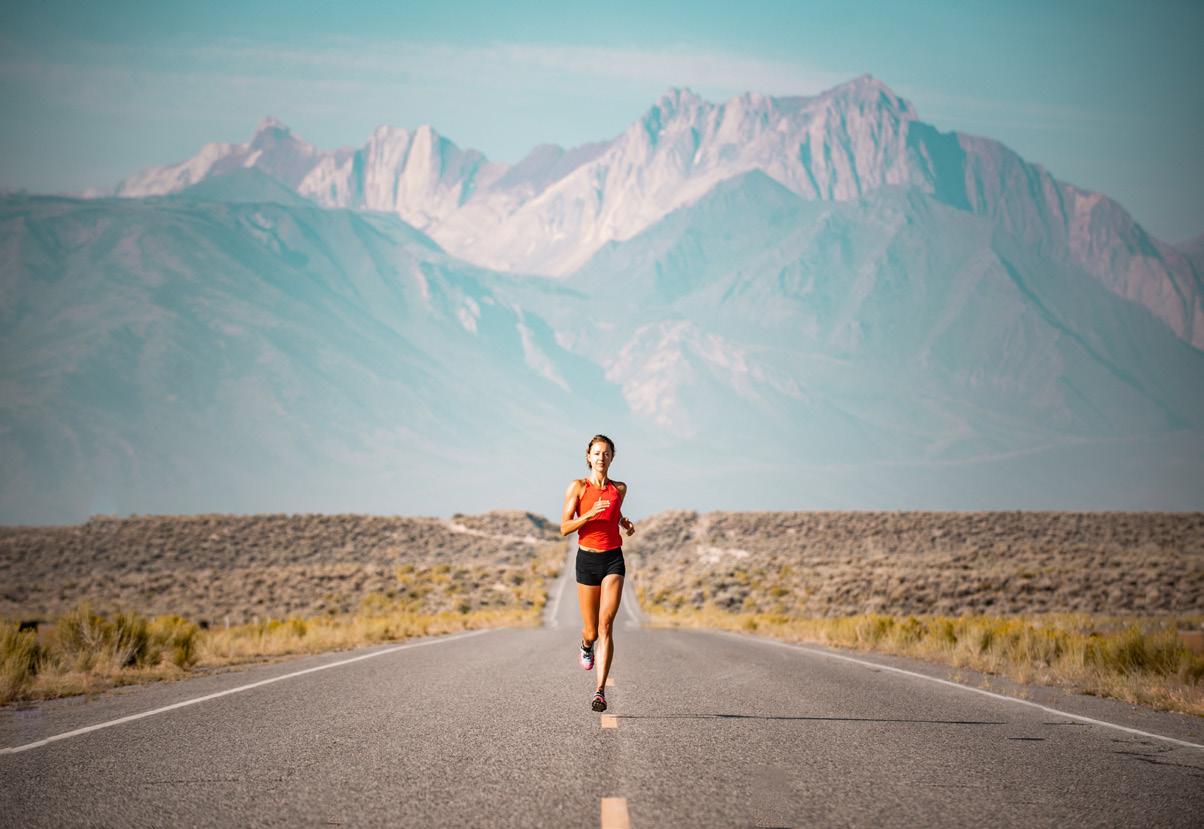
have to happen for the answer to be a ‘yes’?”
I have discovered more things just stepping into a larger body of information that you can access. But it’s not to denigrate the head—I’m not somebody who says just lead with your heart and ignore the rest. You can check back in with your head because it’s just a way to gather more information. It’s a simple process that opens people up to connecting into what they really want; into what their hearts are longing for. Part of this Western puritanical ethic is that we can’t be trusted. The notion is that I can’t trust myself because somehow I’m broken, but if we hold onto the idea that we’re whole and we actually lean towards the good of humanity when we listen to ourselves, we realize that what’s good for me is usually good for the rest of humanity, and we can trust our own inner guidance system. If your guidance system is encouraging you to do something bad, it means that you’re out of alignment with life. It doesn’t mean those are your true desires, it just means you’re unhappy; it’s a way to express it.
SF: You’ve got this incredible eight-week course called Evolutionary Prime: The Path to Living in Super Resilience. Can you explain how you are working to retrain one’s brain and what someone might expect to get out of taking the course?
SM: This course was not something I planned to teach; it actually came out of people asking me to teach my coaching methods and to explain the tools that I use. I wanted to co-create this experience for them, so I spoke with these healers and coaches and I
noticed that they were all looking for tools to fix broken people. However, that’s not how I work. You have to sit with somebody in their wholeness and work to build strength in them and see the strength in them.
If you got out of bed this morning, you were braver than you think, because showing up for life is hard. Yes, it can be joyful and it can be lovely, but at the end of the day, it’s hard. We have pain, we have suffering, we have loss, but we also have extraordinary experiences. For instance, I know all of the work that goes into being a parent; all of the ways that you have to show up when you don’t want to show up, the ways that you’re tired, but you keep pushing yourself on behalf of the people you love. So, I know there is resilience in you that already exists, but if I’m choosing to look at you as broken, we’re in trouble.
I listened to that and realized that before I can teach people what I do, I have to teach people how I live, and that’s actually how Super Resilience was born. The first piece of Super Resilience is being in a place of safety. At a baseline, we need to hang out with each other in safety. I taught this to clients and healers, but I actually feel like this is something we can do for each other, whether it’s a parent for a child, a partner for another partner, or even between colleagues at work. If we’re able to connect our own safety and run out of our parasympathetic nervous system so that we’re not always looking for danger, all of a sudden the relationship shifts.
How do we get our brain just to calm down enough so that we can be present to life and all its possibilities? The Buddhists have slower ways of accomplishing this as compared to some of the neuroscience approaches that we use now. We need to teach our brain new patterns so that it doesn’t have to keep going down the same paths.
There are eight components in the Super Resilience course that are states for super resilience, such as safety and support. Acknowledging support is huge! Most of us have no idea that we’re supported all day long, every day of our lives—there are no self-made people. Carl Sagan said, “If you’d like to bake an apple pie from scratch, you must first create the universe.” This has been one of my guiding principles for years. If we just notice that we’re not alone in life, part of us relaxes.
After we relax into our body and our being, we find our baseline. From there we can expand out a little bit to notice things such as our energy. So many of us are running around feeling completely exhausted all of the time and we don’t even notice it.
together to allow us to have more of an experience of resourcefulness, connection, capacity, and possibility where we can be calmer and realize that we’re not in this alone.
SF: There’s so much that I love about your Super Resilience course. One concept that really stands out is this contrast in nature of humanity either fighting or flowing when the world or life feels out of control. We’re currently seeing a lot of this fighting response to global situations: people are becoming stirred up, frustrated, angered, resistant, rebellious, and fearful. Without giving away too much of the course, can you shed more light on this ability that we have to flow with the process of deeply trusting life and flowing to the greatest opportunity, strength, and grounded way of living?

SM: My students tease me because I probably say, “Be gentle with yourself” more than any human on the planet. This is really the place I start because we are so hard on ourselves. We’re harder on ourselves than other people, and yet we wonder why life is so hard. Well, it’s because you’re beating up on yourself all the time. The first thing I want people to know in the midst of what’s going on is we’re living through unprecedented times—we’re literally in a trauma bath. You cannot escape. We are so interconnected, and this is part of what this virus has been showing us. My breath touches your breath and it can move around the planet. In the midst of this, of course there’s fear, because we don’t even know what this enemy looks like. We can’t see it; we don’t know how to stop it. We’re hoping our scientists are able to determine that, and they’re working very hard. Ultimately, we have little control. To cope with this, we all have a default place that we go to, one that we learned as a survival mechanism as kids. For some of us, that’s fight, while it’s fear for others. When we are faced with fear, we just freeze like a frightened animal. (Almost like an animal that can’t see and hopes nobody sees it.) So, what are you going to do? Some of the response may be misdirected fight
reaction. For instance, people know their response to fear is to fight, but because they can’t see an enemy to fight, they fight things like wearing a face mask instead (even though every piece of science says wearing a face mask is going to help).
SF: I think that the situation has also caused people to feel even more in conflict and frustrated and angered—at least in the United States—and now we’ve got this added element of separatism and disparity and protesting.
SM: I was recently at a conference in Las Vegas, and I ended up sitting across the table from a couple. They were nice, normal-looking people—whatever that means— but I didn’t feel unsafe with them. We started a conversation and the woman said to me, “We’re probably on opposite sides of the fence.” I thought that was a fascinating way to start a conversation because she was assuming that we had different political perspectives. (She was actually right.) But I said to her, “Look, I’ve traveled all over the world. I have worked with people in every corner that you can imagine, and here’s what I notice: No matter who I talk to or who I’m with, there’s some really similar things that we all want. We all want to be healthy, we all want our kids to be healthy, we all want to be
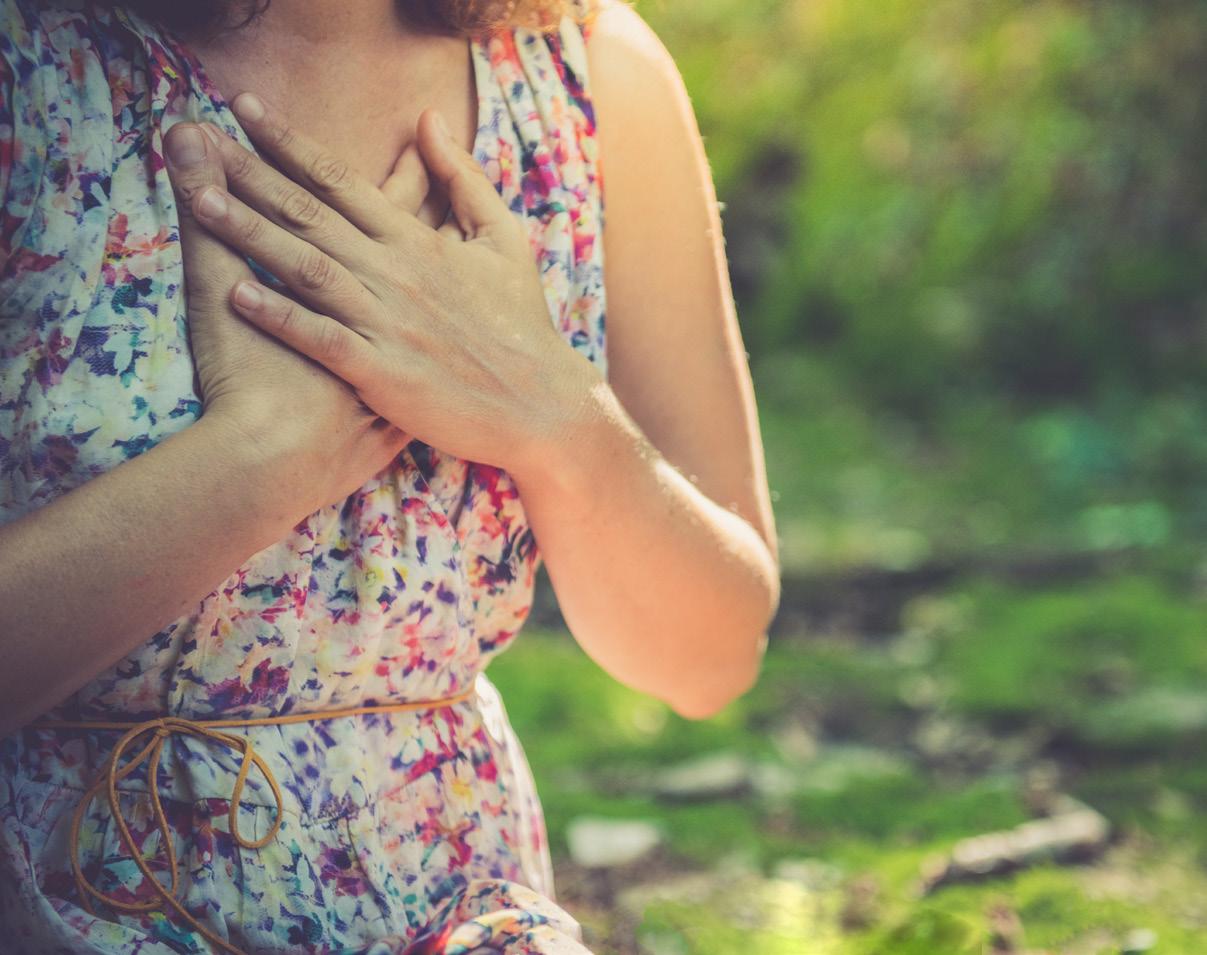
happy, and we all want to feel good in our lives.” All of these are very simple things and I don’t find them to be very different among humans.
So, I said to her, “If I’m finding that more of us are the same than we are different—that you and I are so similar—except maybe in two percent of how we’re relating to the world, I would rather dismantle fences and see if we can just be together.” That was a new approach for me because I’ve lived on opposite sides of the fence and I realized this was uncomfortable and painful. By the end of that weekend, she said, “I feel like you’re a soul brother. I’m so glad to have met you.” This is part of what’s important right now: we
need to realize that we are not on opposite sides of the fence—we’re one collective. As Martin Luther King Jr. said, “We’re part of the inextricable web of life.” This is part of what we’re seeing right now! If your breath affects my breath, we are intimately connected in ways that we have tried to pretend we’re not. We need to connect and ignore the noise. A lot of this cultural dissension is actually flamed by people who want to control us, and I find that to be fascinating. Who are the people who want to aggravate you or poke at wounds so they can motivate something to happen in you that maybe otherwise wouldn’t have?
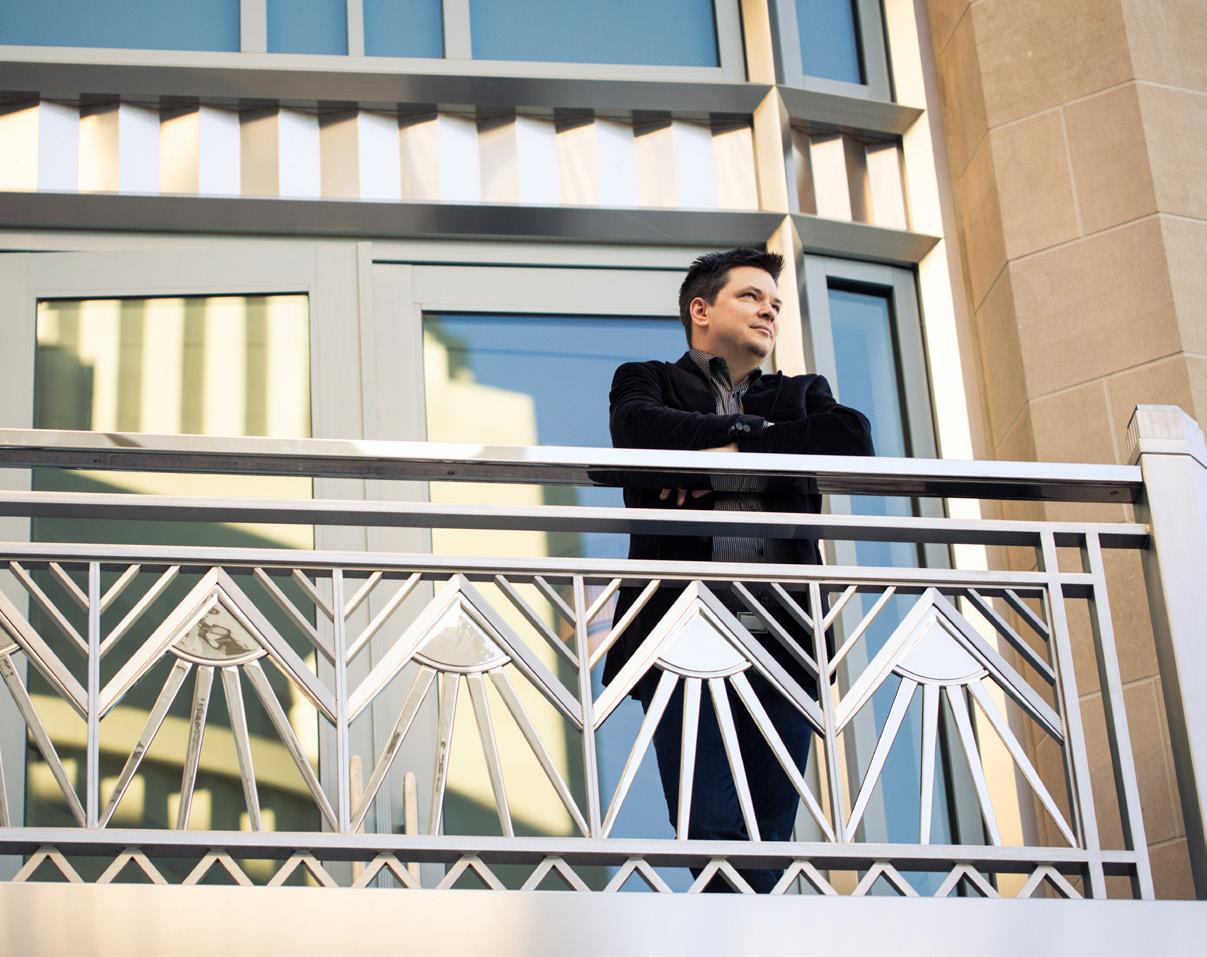
sit with people in my family who were Republicans and Democrats, and nobody shouted, nobody left the table, nobody felt like we were betraying a country; we just had differences of opinion. There’s a fabulous book by Frank Brown called One Nation Under God and it’s about this culture-war that we’re in. He fascinatingly said that up until the late seventies, we were actually getting closer and closer together. We were actually finding more and more similarities! It’s basic human compassion. But, because there was so much connection, it became harder to control people. (I don’t say this as a conspiracy theory; you can actually follow the history of this fairly closely.)
SF: Yes, I’ve actually done a lot of research on it during my master’s degree. You can follow a lot of events throughout history that contribute to exactly what you just described. Disparity truly helps the powers that be maintain control.
SM: If we were all standing together right now and saying, “We believe that every person—every child— deserves to be healthy.” We can together ask the question, “How do we make that happen?” And we can just sit at a table (six feet apart), or we meet via Zoom, and we just hold the humanity of each other. It’s just

such a different world to live in. I invite people into these types of conversations because I made this commitment to myself to try to consistently see the similarities in people. Now, that doesn’t mean I’m going to ignore the things that I deem to be destructive, but at least I can see the commonalities and see the wholeness of people, and try to understand where their fear is playing out.
SF: Speaking of being challenged by the disruption of outside noise, let’s talk about what it means to become an embodied being, which you described as the ability to be in your body and connect deeply to its wisdom. Again, I see this as very challenging for people, particularly right now, when the world around us is just pulling us off center on a daily basis. How do you advise people to become an embodied being; to connect with and be in one’s body? And, what is the wisdom that you speak of in this case?
SM: Many years ago, I had the opportunity to study with the Aikido Master Wendy Palmer, for her book Conscious Embodiment. Wendy was working with a group of us and she said something to me that I will never forget, and it’s something I’ve carried with me ever since. She said, “Life is always out of balance.” For instance, when you’re walking, you’re literally out of balance; your body weight moves, then you catch yourself, then your body weight moves, and then you catch yourself. She said that the art of mastery is not about never being out of balance, it’s about noticing that we’re always going in and out of balance and being to be able to find that center—that balancepoint quicker—more readily through our lives.
For me, the body is one of the best places to quickly find that center point because our thoughts can be challenging. We have all had thoughts that go something like this: “I just had a bad review at work, which means I may get fired, which means I may never have another job again, because if I have that on my record,
nobody will ever want to hire me. Which means that I will end up under a bridge, shaking a tin cup with a dancing monkey, trying to get people to help me.” Our brains just do this thing called “catastrophizing” where we rehearse all the bad things that happened in the past and then project out in time. One of the things we can do is actually come right back to the body to get into the present moment because our body is always in the present moment. Even if we’re just thinking, we might activate the chemicals for anxiety by thinking of the future, or sadness by thinking of the past or a trauma we’ve had. But our bodies are literally in this present moment, so acknowledge that. Feel your feet on the floor, feel your butt in the chair, feel your breath going in and out—it’s very easy to remember we are bodies.

In Super Resilience, when we remember we’re bodies, we can start to connect to the experience of the body. This might be tension, tiredness, sadness, etc. This is all just the way we experience life, so I don’t actually think there are negative or positive emotions, but on the desirable side are feelings like ecstasy and delight. We might feel the pleasant breeze on our cheek or the sun on our face, and we can celebrate that.
When we’re living in our heads, we’re just thinking, imagining the future, and reliving the past. We rarely get to see what’s going on in the right now. To do this, start by noticing the present. You can do simple things like set a timer to notice what you’re feeling in your body every hour and a half. You can do a very simple scan from the top of your head to the bottom of your feet. Ask yourself:
When I talk about body wisdom, it’s this notion that your body—your whole “ system—is able to access more information. So, as you drop into your whole body and you just allow information to arise, that’s the wisdom of the body. The body will tell you. Our emotions show up in the body, so we’re listening to the way in which our whole being responds to the things we want. “
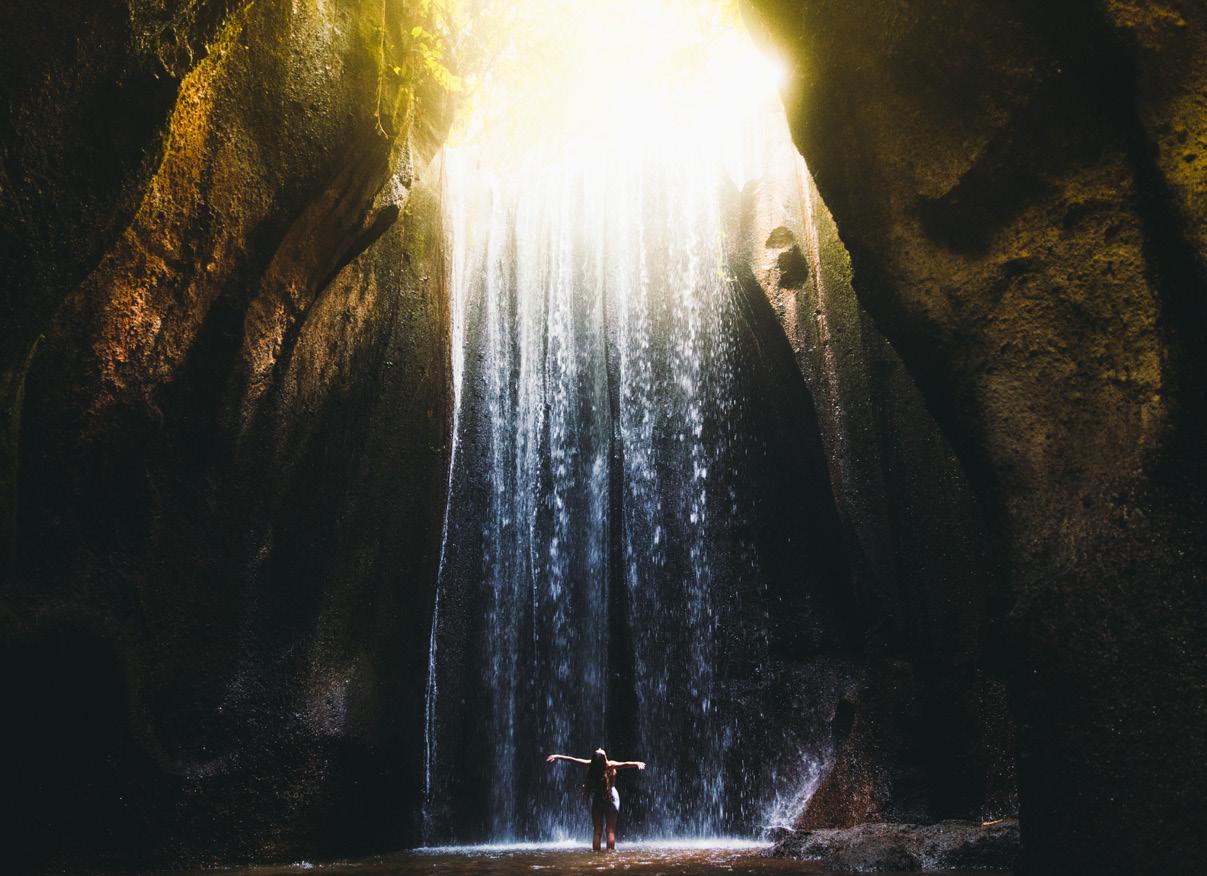
Am I breathing? Do my shoulders feel open? Do they feel tight? Then, ask about the wisdom of the body including our emotions and our physicality. If you’re sitting with a big decision you need to make, start by tuning out other people. Listen to yourself as you breathe, and imagine the different scenarios. Feel when your body is tense and when it’s relaxed. There’s just such an ease in doing this. People think it’s so complicated and difficult to be in our bodies, but it’s not; it’s hard to be present to our current reality.
SF: Yes, absolutely. So, what’s the wisdom that is being connected with?
SM: When I talk about body wisdom, it’s this notion that your body—your whole system—is able to access more information. So, as you drop into your whole body and you just allow information to arise, that’s the wisdom of the body. The body will tell you. Our emotions show up in the body, so we’re listening to the way in which our whole being responds to the things we want.
SF: Right, so it’s really this inner knowing. We typically think that wisdom comes from our mind and our ability to think and create these ideas.
head, it’s very easy to pretend that our actions don’t have physically embodied consequences on other people.
SF: Because they’re not connected to this sense of compassion and empathy.
SM: Because we’re not connected to any of our experiences. It’s as if we’re watching ourselves live in a movie screen: whatever happens just happens. But, as soon as we step into our body and we feel physically embodied, then all of those other bodies around us become more real, too.

This is one of the reasons why we have a hard time staying in our bodies, especially those of us who live in the city. If I’m fully embodied, it’s very hard to walk down a street, past homeless people whose bodies have no place to rest. When I’m in the fullness of my being, it’s very hard for me not to recognize other people in pain. This is one of the reasons I think we exit ourselves, because in so many places, it’s hard to know what to do about external circumstances. It just feels so overwhelming, so we’ll just exit the system because it has no answers (as we see it).
SF: It’s that feeling of hopelessness, and nobody wants to connect with that feeling. You want to feel that there is hope; that there are answers and solutions. It is really easy to disconnect and disengage or cover up that feeling.
SM: When we do step into our bodies, we realize there are actually more solutions than we ever imagined. Going back to the homelessness issue, it becomes a corporate embodied responsibility that we take care of other human beings, especially when we understand that we are in this inextricable level of life—that that person on the street is deeply connected to us. When we’re in our bodies, we also connect to the body of the planet. Again, it’s not that hard to pick up trash on the street; it’s not that hard to plant trees. When we’ve looked at a problem and said, “Oh, this is impossible,” it just is because we haven’t had the will or the imagination or even the presence to do something different.
Stay tuned for Part Two of this exciting interview in the next issue of Face the Current!






